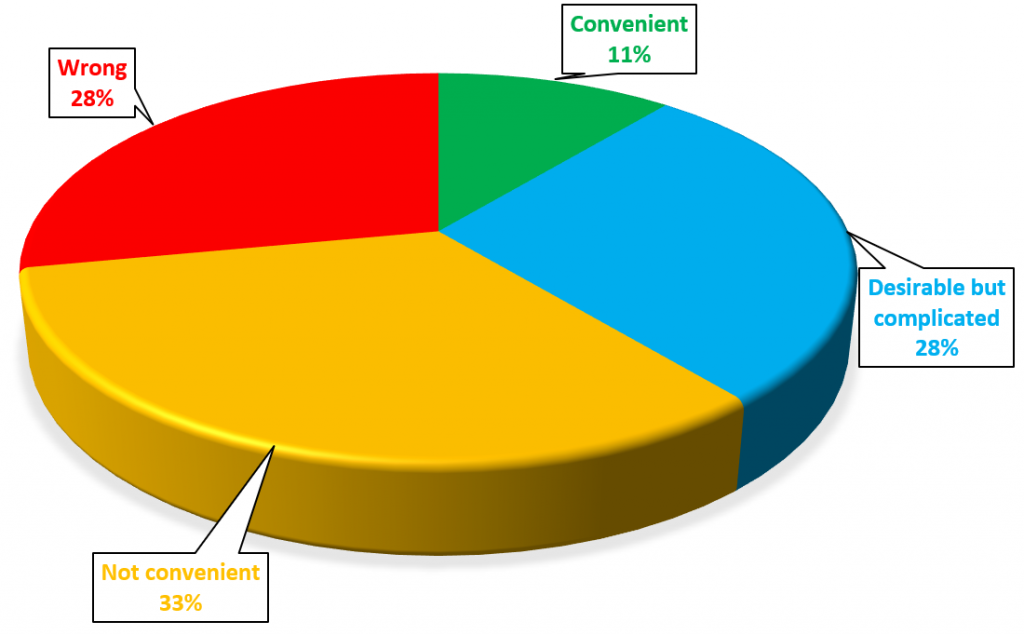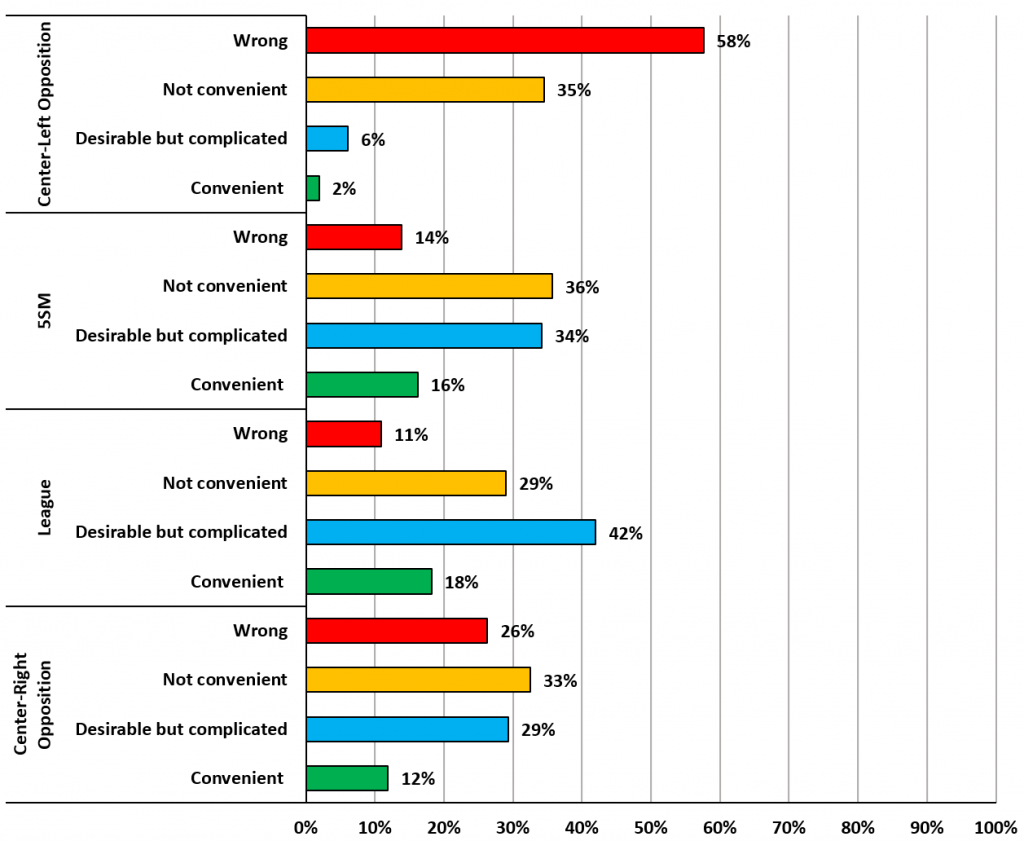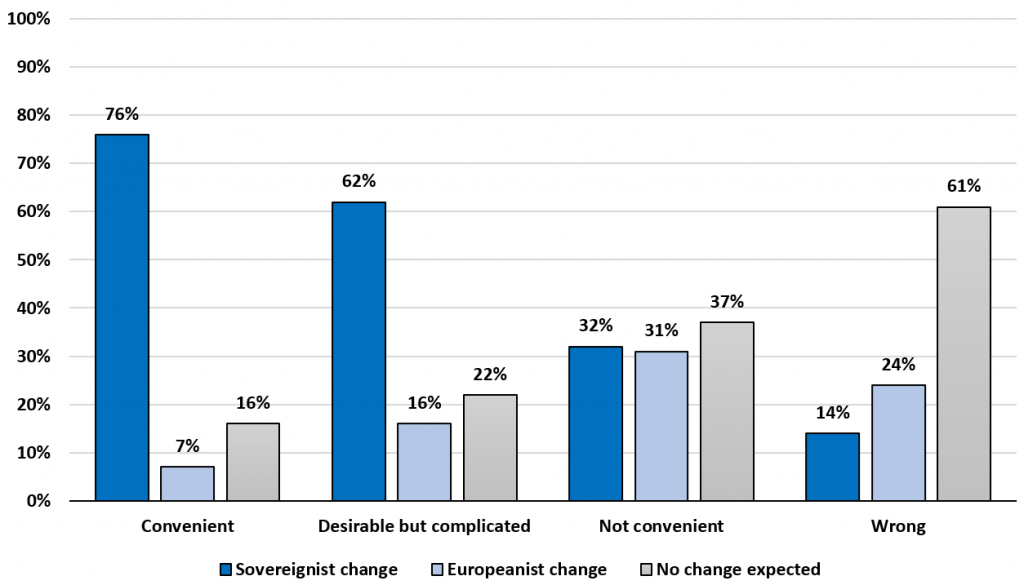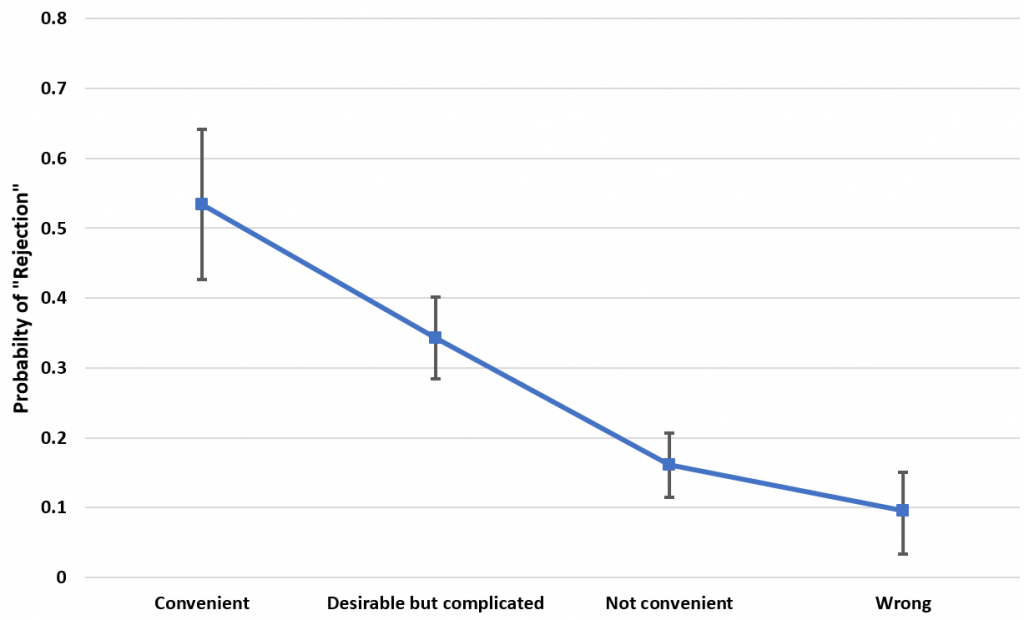If other countries were to follow the UK in voting to leave the EU, then Italy would be one of the most likely candidates. But what impact has Brexit had on Italian public opinion? Drawing on findings from a new survey, Gianluca Piccolino, Davide Angelucci and Pierangelo Isernia find that among supporters of the Five Star Movement/League government, Brexit appears to have bolstered support for taking a harsher line with Brussels. However, these citizens still represent a minority and are largely outweighed by those whose Eurosceptic positions have potentially been mitigated by the confusion generated by the Brexit process.
What the British public think of Brexit is a topic of keen debate both in the UK and in the other member states of the European Union. But far less is known about what other Europeans think of Brexit and what effect the chaotic exit process has had on the way people all over Europe assess the feasibility of the ‘leaving’ option for their own country. Right now, no country is possibly more interesting than Italy for analysing the kind of lessons Brexit might have taught to the public in other European countries: this is in fact the first Western European country run by a fully populist and Eurosceptic coalition of parties, namely the Five Star Movement (M5S) and the League.

What kind of lessons then have Italians drawn from Brexit? Has the reigning confusion transpiring from Westminster cooled the appeal of ‘Italexiters’? Or has the process rather increased the popularity of the exit option? An online survey on the foreign policy attitudes of Italians conducted in February 2019 by the University of Siena and the Istituto Affari Internazionali helps to answer these questions, at least partially.
As shown in Figure 1, Italians are split on what the Brexit experience tells them about a hypothetical exit of Italy from the EU. Only 11 per cent of the sample found the Italexit option “convenient”, while a not negligible part of the sample, 28 per cent, found it “desirable, but too complicated;” 33 per cent considered it “not convenient,” and for 28 per cent it was simply “wrong”.
Figure 1: In your opinion, the Brexit experience shows that Italy’s exit from the EU is…
Source: Istituto Affari Internazionali and University of Siena, 2019
The assessment of how desirable and/or convenient Brexit could be as a template for Italy to follow is tainted by party preferences. Voters on the centre-left reject the Brexit model almost unanimously, while centre-right voters have more varied reactions. Among supporters of the governing parties, slightly more voters consider the Italexit option convenient than those who consider it wrong (16 per cent vs 14 per cent in the M5S and 18 per cent vs 11 per cent in the League), and those who consider the leave option “desirable but not convenient” account for 42 per cent of voters for the League and 35 per cent for the Five Star Movement.
Figure 2: Attitudes toward ‘Italexit’ by voting intention for Italian parties
Source: Istituto Affari Internazionali and University of Siena, 2019
How do these mixed feelings about Brexit influence Italians’ expectations about the future of the European Union and to what extent might the appeal of a possible Italexit lead to a portion of the Italian public supporting contentious positions towards the EU?
In Figure 3 we compare expectations about the recent European parliamentary elections among people with different attitudes toward Brexit. We distinguish between three groups: those who did not expect any change from the European election; those who expected a change in the direction of a strengthening of the EU; and those who also expected a change, but in the direction of a return to stronger national powers over EU institutions.
We found that 76 per cent of those who consider the Brexit lesson convenient for an ‘Italexit’ hoped that the new European Parliament would be able to give a sovereign turn to the EU. This proportion decreases to 14 per cent among those who consider the exit of Italy from the EU to be a clear mistake. Only 7 per cent of those who consider the Brexit option convenient expected a change in favour of the Union’s strengthening, with a percentage that grows up to 31 per cent and 24 per cent among those who consider the Brexit option not convenient or completely wrong respectively.
Figure 3: Attitudes toward Brexit in Italy and expectations about the future direction of the EU following the 2019 European Parliament elections
Note: The questions used were as follows: Q1: On May 26th, the election for the European Parliament will take place. The Italian government expects that a new parliament will be able to substantially change the structure of the EU. Do you share this expectation or not? Q2: [For those who answered “Yes, completely” and “Yes, enough” to Q1]: Do you hope that the next European Parliament will be committed to… Options to Q2: Give back powers to national state; Increase the EU’s action. Source: Istituto Affari Internazionali and University of Siena, 2019.
If this provides a relatively coherent image of the attitudes of Italians, it is not yet clear how far the supporters of Italexit are ready to go on the collision path with European institutions. Our research offers an answer to this question. We asked our respondents what Italy should do in the event that a new economic crisis prompts EU authorities to request the implementation of severe austerity measures. Should the Italian government reject these requests offhand; should it negotiate with EU institutions to find a compromise; or should it simply accept the new austerity measures?
The Brexit lesson exerts its influence here. An absolute majority of those in favour of Brexit openly support the option of clashing with the Union. Only five per cent think the same among those who look at Brexit as a mistake. To explore in greater detail who these hardliners are and what role the Brexit lesson teaches them, we analysed how attitudes towards Brexit, expectations about the new European Parliament and voting intentions for the EP explain different negotiating attitudes.
Using the negotiation option as a reference (i.e. “Italy should negotiate a compromise with the EU”) and focusing on those who subscribe to the ‘reject’ option (“Italy should reject new austerity measures”), Figure 4 summarises how the probability of rejecting new austerity measures varies depending on attitudes toward Brexit, controlling for party preference and expectations about the European elections.
Attitudes toward Brexit had a remarkable impact on what respondents thought should be done in the case of a new austerity crisis. Among those who consider Brexit to be an example to follow in Italy, the probability of positing a conflict with the EU on the national budget was the highest. This result holds true in comparison to the probability of rejection recorded both among those who consider Brexit desirable but too complicated and among those who tend to have a substantially negative view of the exit option. It is also worth noting that even those who consider Brexit desirable but not convenient display a significantly higher probability of rejecting new austerity measures than those who have a generally negative view of Brexit. On the other hand, there is no significant difference between those who consider Brexit inconvenient and those who fully reject Brexit.
Figure 4: Probability of Italians rejecting austerity by Brexit preferences
Note: Predicted probability of rejecting new austerity measures among Italian citizens. Results based on a multinomial logistic regression (Base outcome: “Negotiate a compromise with the EU”), controlled for gender, education, and age, party preference and expectations about the EU Parliament elections. Pseudo R2= 0.21. The question asked was as follows: In the event of a worsening of Italy’s economic situation, it is possible that the EU will ask the Italian government to take measures of economic rigor to keep the public deficit under control. In this case, according to you, Italy should… Source: Istituto Affari Internazionali and University of Siena, 2019.
This is both good and bad news for both Italy and the EU. The bad news is that there are citizens whose positions on a potential Italexit have been fuelled by the chaotic Brexit process and who are ready “to go to the mattresses” with Europe. These citizens are mostly located among voters for the governing parties. The good news is that these citizens still represent a minority and are largely outweighed by those whose Eurosceptic positions have evidently been mitigated by the bewildering spectacle of uncertainty and confusion staged during the never-ending negotiations over the UK’s exit. Should those who wish Europe well be thankful that Brexit has proven to be such a mess?
This article gives the views of the authors, not the position of LSE Brexit or the London School of Economics. It first appeared on our sister site EUROPP – European Politics and Policy.
Gianluca Piccolino is a PhD candidate in Political Science, European Politics and International Relations, a joint initiative of the Sant’Anna School of Advanced Studies and the Universities of Florence, Pisa and Siena.
Davide Angelucci is a PhD student at the University of Siena and Research Fellow at CISE, LUISS – Guido Carli. His research interests focus on European politics, political behaviour and political participation. He has recently worked on the politicisation of European foreign and security policy. He is currently working on youth and political inequalities in Europe.
Pierangelo Isernia is Professor of Political Science in the Department of Social, Political and Cognitive Sciences (DISPOC) at the University of Siena, Italy. He is also the Director of the Survey Research Center (LAPS – Laboratorio Analisi Politiche e Sociali) at the University of Siena. His main research interests are in the area of public opinion, foreign policy and European integration.










